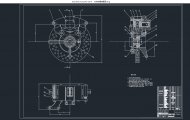两轴小巴车制动器设计(含CAD零件装配图,MATLAB程序)(任务书,开题报告,文献摘要,外文翻译,论文说明书16000字,CAD图4张,MATLAB程序)
摘要
经历了百多年的发展,汽车已经成为今天社会生产生活各个方面里,必不可少的交通工具。在改革开放以后的几十年里,中国经济快速发展,汽车保有量和公路数量都以显著的速度增加,同时驾驶员的非职业化也渐渐成为了一种常态。公路上的汽车越来越多,各种交通事故不断发生,这已经成为了不容忽视的安全问题。而制动器的实际性能,和事故有很大关系。如何开发安全稳定且效率较高的制动器,已经成为汽车生产的一个重要问题。本文题目是两轴小巴车制动器设计,两轴小巴车属于轻型客车,要求类似普通乘用车,在比较各种类制动器的特点后,选择浮动钳盘式制动器,并使用真空液压式的伺服系统。使用MATLAB软件计算分析,绘制I曲线和利用附着系数曲线,衡量了轮缸和管路压力大小是否合理。同时也校核了由于摩擦生热而引起的温升,利用真空助力比和踏板传力比来判断所需的踏板是否大小合适。
关键词:
盘式制动器,两轴小巴车,制动力分配系数
Abstract
In the decades since the reform and opening up, China's economy has developed rapidly. The number of cars and roads has increased at a remarkable rate. At the same time, the driver's non-professionalization has gradually become a normal trend. There are more and more cars on the highway, and various traffic accidents occur constantly, which has become a safety problem that can not be ignored. The actual performance of the brake has a lot to do with the accident. How to develop safe, stable and efficient brakes has become an important issue in automobile production. This paper is about the brake design of two-axle minibus. The two-axle minibus belongs to light bus. It is required to be similar to common passenger car. After comparing the characteristics of various types of brakes, the floating caliper disc brake is selected and the vacuum hydraulic servo system is used. Using MATLAB software to calculate and analyze, draw I curve and use adhesion coefficient curve to measure whether the pressure of cylinder and pipeline is reasonable or not. At the same time, the temperature rise caused by friction heat is checked. The appropriate size of pedal is judged by vacuum power ratio and pedal force transfer ratio.
keywords:
Disc brake, two-axle minibus, braking force distribution factor
两轴小巴车的主要技术参数
本设计为两轴小巴车制动器,预先给定的小巴车整车参数如下所示:
空载 满载
空载质量(Kg) m1 2000 m2 2500
前轴载荷(Kg) 954.24 1192.80
后轴载荷(Kg) 1045.76 1307.20
质心高度(mm) Hg 370 Hg 520
质心距前轴距离(mm) a 2034 a 2300
质心距后轴距离(mm) b 1856 b 1590
轴距L(mm) 3890
前后轮胎规格 175/70R16
车轮滚动半径Re(mm) 292
制动踏板 杠杆比 3.7
全行程(mm) 待定
效率因数 0.85
真空助力器 真空助力比 待定
制动主缸
主缸直径(mm) 待定
总行程(mm) 待定
活塞空行程(mm) 1.5
推杆与活塞间隙(mm) 1.5
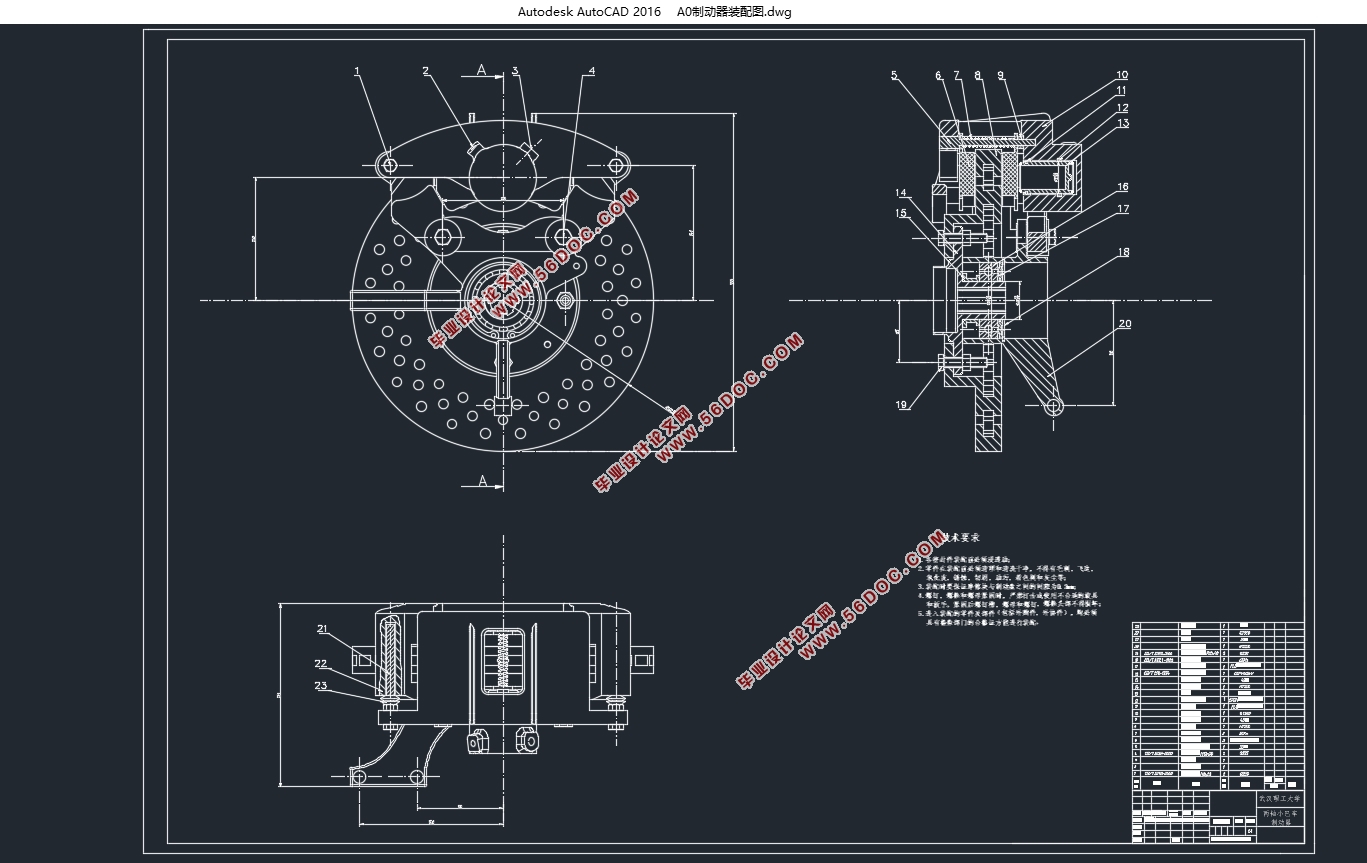
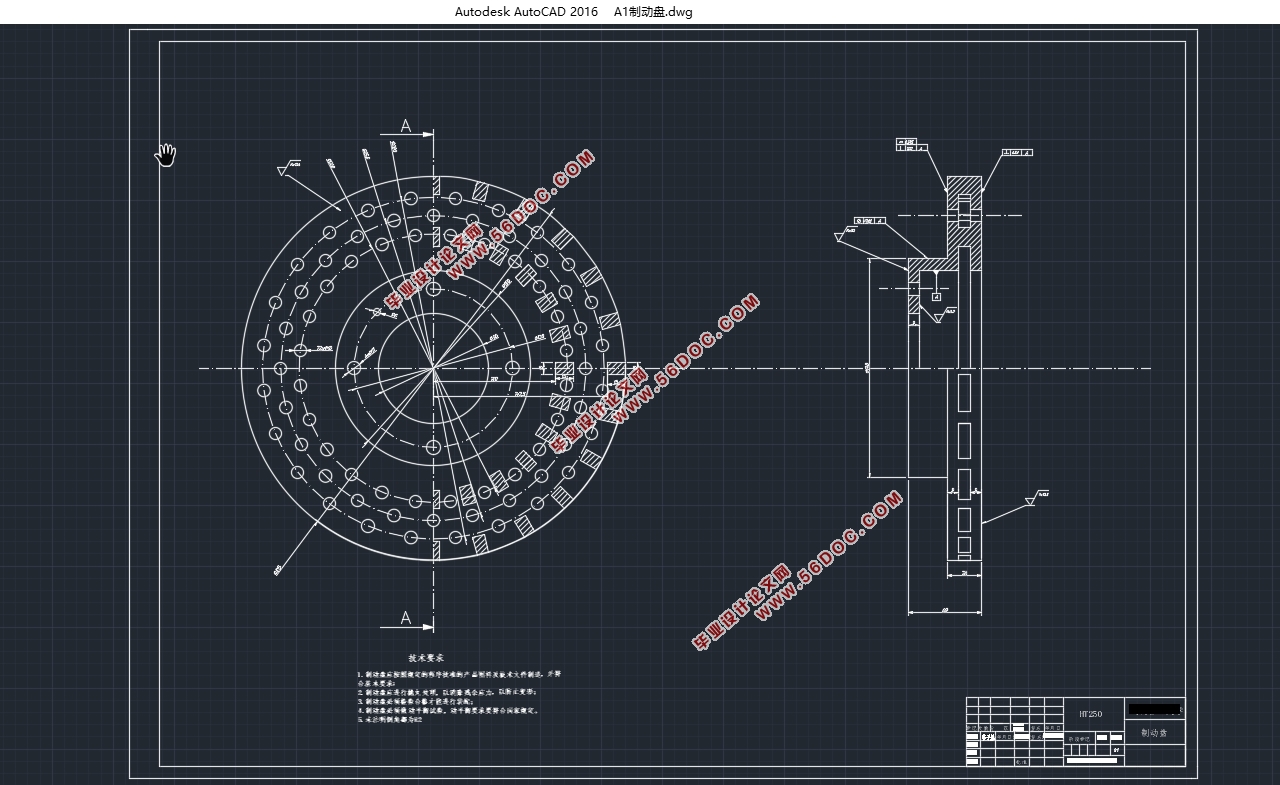
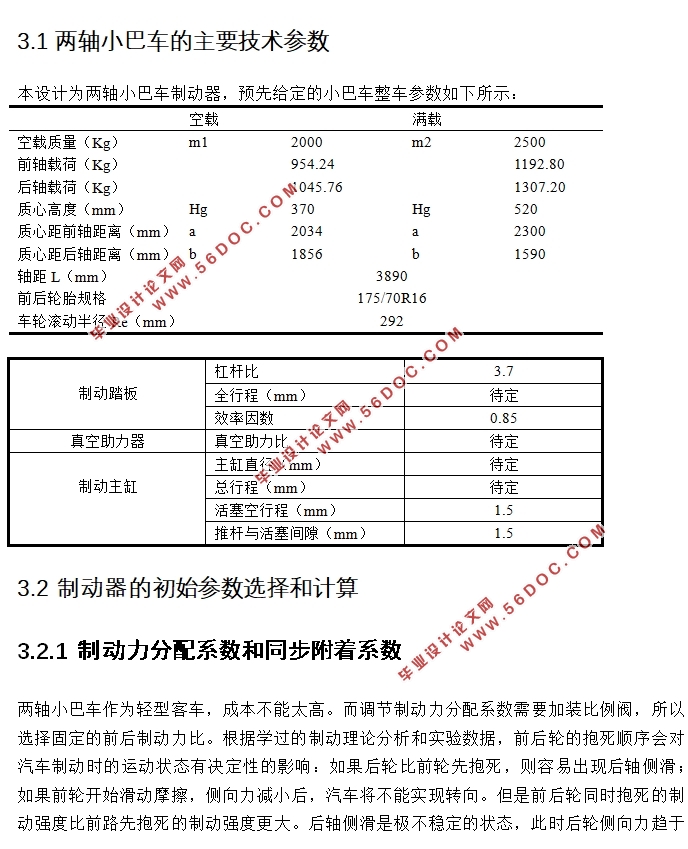
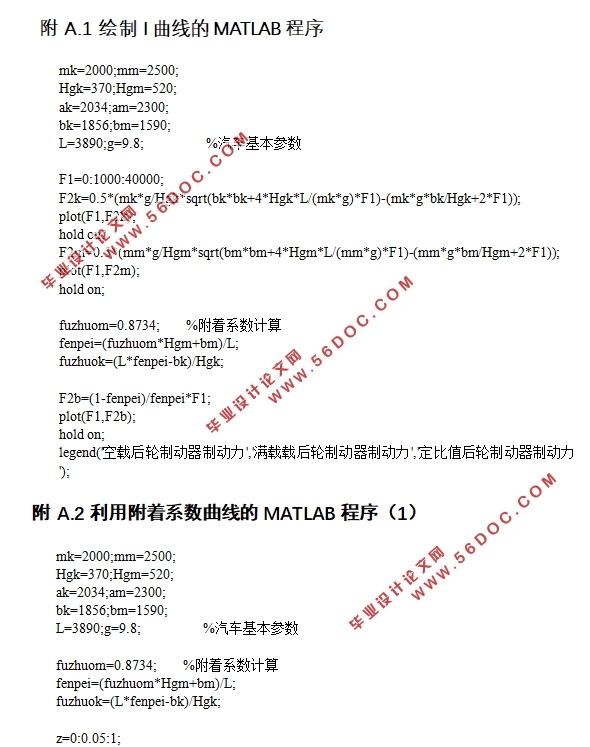

目录
第一章绪论 1
1.1研究目的与意义 1
1.2国内外研究现状 1
1.3本章小结 2
第二章制动器的设计方案选择 3
2.1制动器的一般分类 3
2.2制动器工作原理 3
2.2.1鼓式制动器 3
2.2.2盘式制动器 3
2.3盘式制动器方案的选择 4
2.3.1固定钳盘式制动器 4
2.3.2 浮动钳盘式制动器 5
2.3.3全盘式制动器 6
2.4制动驱动机构的选择 6
2.5本章小结 7
第三章小巴车制动器结构设计 8
3.1两轴小巴车的主要技术参数 8
3.2 制动器的初始参数选择和计算 8
3.2.1 制动力分配系数和同步附着系数 8
3.2.2利用附着系数 10
3.2.3制动器的制动力矩 12
3.3 制动器的主要参数确定 13
3.3.1制动钳盘 13
3.3.2摩擦衬块 14
3.4 本章小结 16
第四章小巴车制动器设计与计算 17
4.1摩擦衬块压力 17
4.2制动效能因数 17
4.3制动效能计算 18
4.3.1行车制动距离和制动减速度 18
4.3.2应急制动力矩和制动距离 18
4.3.3驻车制动 19
4.4本章小结 20
第五章两轴小巴车的操纵和性能校核 21
5.1驱动机构设计和校核 21
5.1.1制动轮缸 21
5.1.2制动主缸 22
5.2真空助力比和踏板力校核 22
5.3磨损特性和热能计算 23
5.3.1比能量耗散率 23
5.3.2比摩擦力 24
5.3.3 热能和温升 25
5.4章末小结 25
第六章设计总结 26
参考文献 27
附录 28
附录A 28
附A.1 绘制I曲线的MATLAB程序 28
附A.2利用附着系数曲线的MATLAB程序(1) 28
附A.3 利用附着系数曲线的MATLAB程序(2) 29
附A.4 制动器结构性能参数的计算程序 30
致谢 33
|
